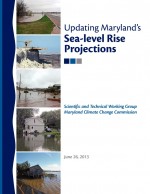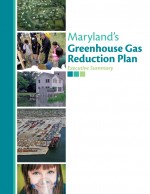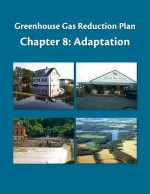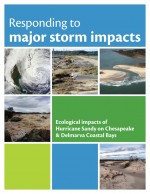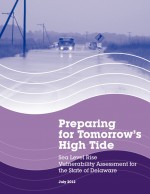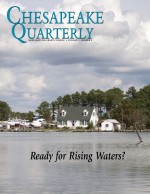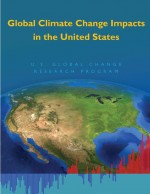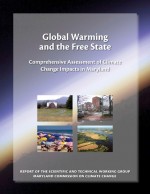A consensus exists in the scientific community that climate change is driven by human activity. The changing climate is no longer debatable, and the importance of climate science is reflected in its first-ever explicit inclusion in the 2013 Next Generation Science Standards. Today’s K-12 students are tomorrow’s decision-makers, and promoting climate literacy is essential to ensuring that future policy and research decisions incorporate climate change mitigation and adaptation needs. The new science standards that explicitly incorporate climate change are confined to middle and high school levels in the domain of Earth Science. However, numerous opportunities exist throughout all grades and multiple domains to incorporate climate science into standards that are proximally related. Furthermore, applying climate change issues to the region in which students live will personalize the experience and potentially increase the motivation for students to learn the science and ultimately, participate in activities that promote more sustainable practices.
The following publications and websites are resources that address the science and policy of climate change on the local, national and global levels.
Featured

Donald Boesch, president of the University of Maryland Center for Environmental Science walks through the history of climate change and how it affects our weather, our communities and our planet. Watch the YouTube video clip.
Climate Change Topics: Communication, Sea Level Rise, Extreme Weather, Energy
Scientific and Technical Working Group, Maryland Climate Change Commission. June 2013. In response to Maryland Governor Martin O’Malley’s executive order, the University of Maryland Center for Environmental Science and experts across the mid-Atlantic region collaborated on a report updating Maryland’s sea-level rise projections. The Chesapeake Bay region is particularly vulnerable to the effects of sea-level rise, and development projects based on the most current scientific knowledge is essential in adapting to climate change.
Climate Change Topics: Sea Level Rise, Climate Models and Science, Adaptation
Published: June, 2013
Details: PDF (3.3 MB, 22 pages)
Under Governor Martin O’Malley’s leadership, Maryland has chosen to move forward, even as most states and the United States Congress have not. Greater action by the states will encourage the Nation to address climate change. In 2009, Governor Martin O’Malley and Maryland’s General Assembly charged the State with developing a Greenhouse Gas Reduction Plan (referred to as the Plan) that will reduce greenhouse gases 25 percent by the year 2020.
Climate Change Topics: Adaptation, Mitigation, Energy, Urban Impacts, Agriculture
Published: July, 2013
Details: PDF (12.3 MB, 20 pages)
As the State moves forward with actions that will reduce greenhouse gases and ultimately result in increased energy efficiency, a more sustainable economy, and cleaner air; climate impacts will still be felt into the future. Therefore, adaptation, together with mitigation, is necessary to address climate change. It is noted, however, that these actions are by no means independent of each other and any program or policy to mitigate the effects of climate change will complement steps to reduce the state’s risk to climate impacts.
Climate Change Topics: Adaptation, Sea Level Rise, Urban Impacts, Agriculture
Published: July, 2013
Details: PDF (7.5 MB, 24 pages)
A rapid ecological assessment of Hurricane Sandy’s impacts on the Chesapeake Bay and Delmarva Coastal Bays was conducted using data provided by scientists from government agencies, non-government organizations, and academic institutions. A synthesis of these data revealed both negative and potentially positive effects on the ecological systems. Several recommendations for mitigation activities were made to help inform U.S. congressional leadership and the general public.
Climate Change Topics: Extreme Weather, Mitigation, Ecological Systems, Urban Impacts, Sea Level Rise
Published: December, 2012
Details: PDF (6.4 MB, 20 pages)
The Secretary of the Delaware Department of Natural Resources and Environmental Control (DNREC) established a Sea Level Rise Advisory Committee comprised of representatives from the private, public, and nonprofit sectors. The committee’s work consists of two phases: assessing Delaware’s vulnerability as sea levels rise, and planning for adaptation. The completed vulnerability assessment—an analysis of the potential impacts sea level rise may have on 79 state resources—will guide the planning for the adaptation phase. For more information, visit: http://www.dnrec.delaware.gov/climatechange.
Climate Change Topics: Sea Level Rise, Mitigation, Adaptation, Climate Models and Science
Published: July, 2012
Details: PDF (5.2 MB, 210 pages)
The Maryland Sea Grant College at the University of Maryland was established in 1977 to protect and restore Maryland’s coastal resources—funding research, education and outreach while addressing scientific, economic and social challenges facing the Chesapeake Bay. Members of Maryland state universities and academic laboratories contribute their expertise to research of fisheries management, plankton dynamics, invasive species and nutrient cycles. Graduate and undergraduate students are given the opportunity to participate in Sea Grant-funded research. Sea Grant strives to connect scientific expertise with those directly impacted by the Bay, and publishes Chesapeake Quarterly, a magazine targeted to both managers and the public. For more information, visit Sea Grant’s website at http://www.mdsg.umd.edu.
Climate Change Topics: Sea Level Rise, Extreme Weather, Mitigation, Adaptation
Published: December, 2010
Details: PDF (1.8 MB, 16 pages)
As directed by the U.S. Global Change Research Program, the National Climate Assessment (NCA) represents a collaboration of 13 Federal science agencies, a 60-member advisory committee, and 240 academic, government, private, and nonprofit sector authors. Using broad reaching scientific information, the NCA synthesizes and communicates the current knowledge in climate change science, assesses the gaps in knowledge, and projects future trends. The NCA’s goals include informing Federal and climate science research priorities, building climate-literacy, and serving as a resource for U.S. citizens, communities and businesses to use when making sustainability plans. The next National Climate Assessment report is due for release in 2013. For additional information, visit http://www.globalchange.gov.
Climate Change Topics: Climate Models and Science, Communication
Published: January, 2009
Details: PDF (9.1 MB, 196 pages)
On August 27, 2008, the Commission released its Plan of Action that assesses likely climate change impacts in Maryland and presents strategies to reduce greenhouse gas emissions and reduce the state’s vulnerability to climate change. Global Warming and the Free State is the comprehensive climate change impact assessment included as Chapter 2 of the Plan of Action. It was prepared by a Scientific and Technical Working Group, consisting of leading Marylanders with expertise in climate and its impacts.
Climate Change Topics: Climate Models and Science
Published: January, 2008
Details: PDF (10.4 MB, 92 pages)
Established by the United Nations Environment Program and the World Meteorological Organization, and authorized by the United Nations (UN), the Intergovernmental Panel on Climate Change (IPCC) is dedicated to assessing the current scientific, technical and socio-economic information as it relates to climate change. The IPCC is truly a global effort, open to all UN countries and comprising 195 members. Thousands of scientists contribute to its work, resulting in a thoroughly reviewed policy-neutral assessment. A synthesis of the most recent assessment—released in 2007—incorporates the full reports of the three workgroups. The next report is scheduled for completion in 2014. For more information on the IPCC and PDFs of each workgroup’s full report, visit http://www.ipcc.ch.
Climate Change Topics: Climate Models and Science, Human Health, Sea Level Rise, Extreme Weather
Published: November, 2007
Details: PDF (4.1 MB, 53 pages)
Find a Climate Science Resource
Leave filter options blank for all

